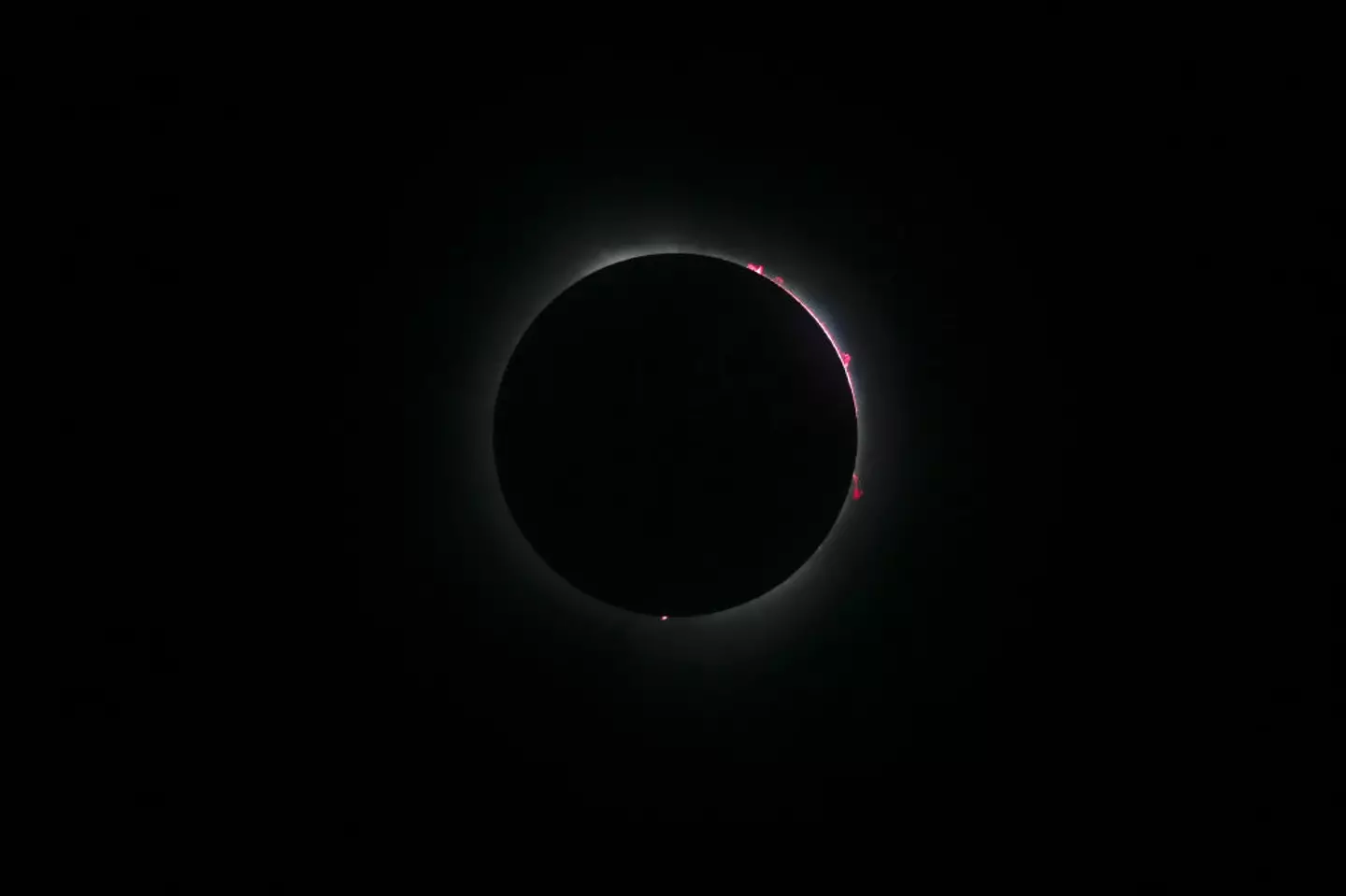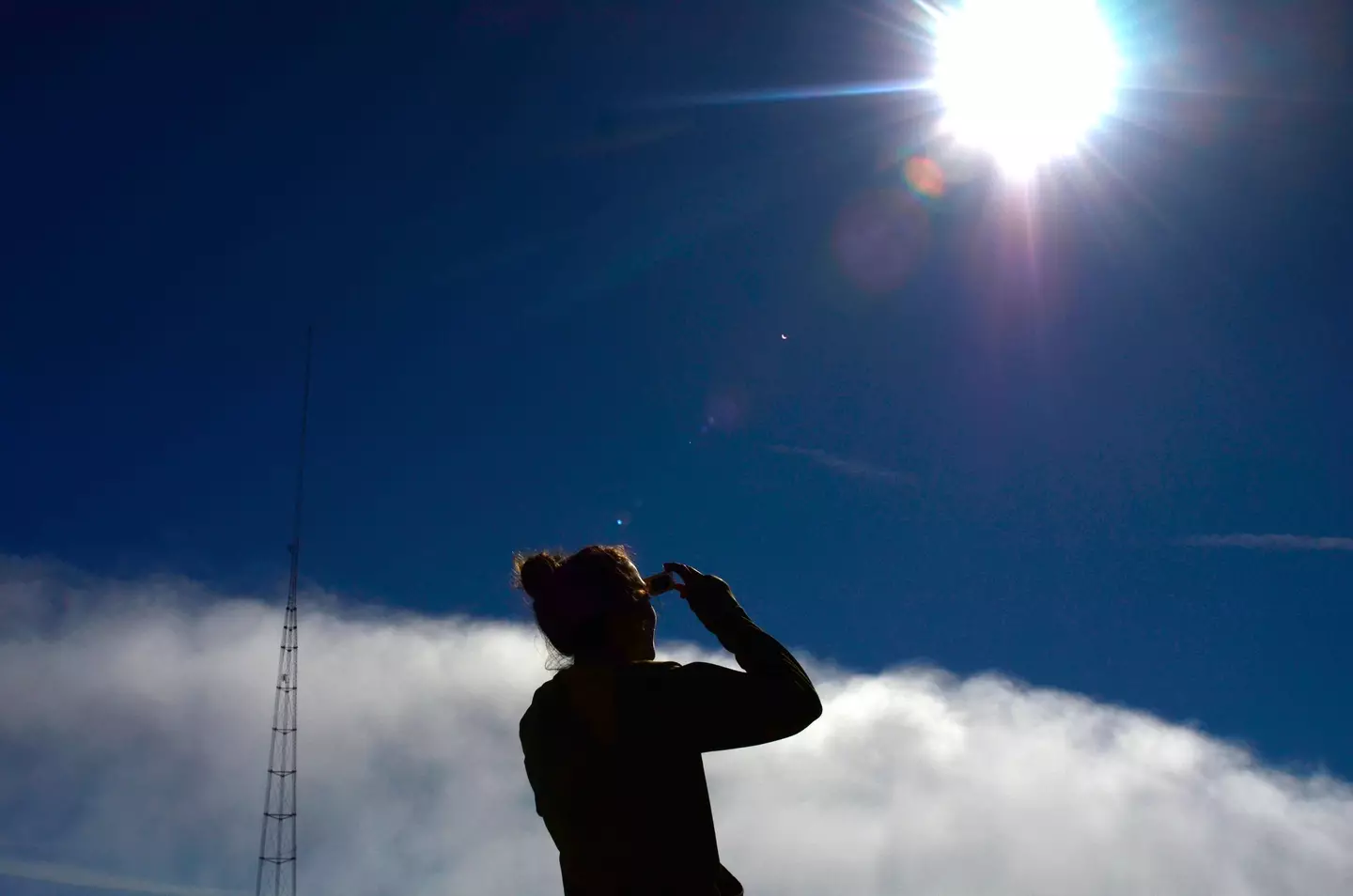
Ever since Monday's (8 April) solar eclipse, there's been a rather odd spike in a three-word Google search.
Yesterday, people across the pond were dazzled by the cosmic event, which saw
the Moon fully cover the Sun’s surface.
Advert

The US, Mexico and Canada were in the path of the eclipse, which first entered Mexico’s Pacific coast, through Texas and the Midwest, Mid-Atlantic and New England, before making its way over eastern Canada and into the Atlantic.
More than 31 million people were able to see the rare event, which is a lot of people staring directly at the sun.
Prior to the eclipse, experts repeatedly warned that you should never look at an eclipse directly, even if it is just a partial one.
I mean you wouldn't just stare up at the sun ordinarily, would you?
Advert
Experts warned that if you are viewing an eclipse, you should use solar eclipse glasses. This is because even just a percentage of the sun’s radiation can damage your eyes.
According to The Planetary Society, certified solar ellipse glasses are 100,000 times darker than ordinary sunglasses.
But despite the warnings, it seems some people might not have paid too much attention to the health advice.
The three word phrase, 'my eyes hurt' actually spiked during the eclipse.
Advert
So who wasn't wearing their glasses, eh?
Similar terms also had a higher than normal search, including 'eyes hurt after looking at eclipse', 'my eyes hurt after looking at the eclipse' and 'why do my eyes hurt after looking at the eclipse'.
Oh dear.

Back in the 1999, following the last solar eclipse to take place in the UK, several thousand people rang helplines or attended eye clinics following the event.
Advert
The BMJ reported at the time that almost a week after the eclipse, there were at least 14 confirmed cases of solar retinopathy, which is essentially photochemical damage to the retina.
"Most of the known cases resulted from looking at the sun without protecting the eyes," they explained.

"In one of the more serious cases the patient had reportedly looked at the sun for around 20 minutes without protection."
Symptoms of solar retinopathy include headaches, sensitivity to light, blurred vision, eye pain and a blind spot in your vision.
Advert
If you are experiencing symptoms - and if you looked directly at the sun during this week's eclipse - it is important to seek medical advice immediately.
